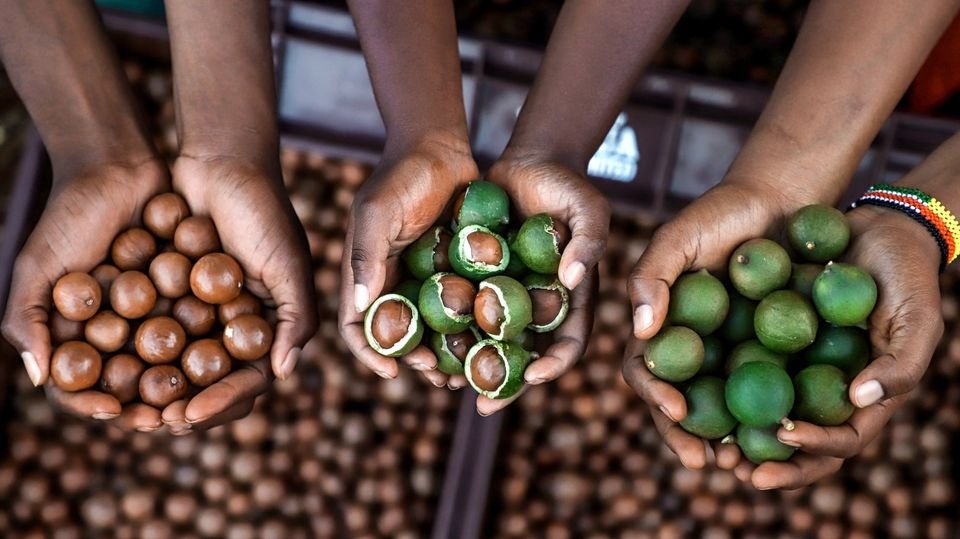By Zablon Oyugi, September 11, 2024, Kenya’s macadamia nut production has surged from about 11,000 tons in 2009 to 41,500 tons of “nuts in shell” (NIS) in 2022, according to a recent Africa Agriculture Status Report by the Alliance for a Green Revolution in Africa (AGRA).
This growth has propelled Kenya to become the third-largest exporter of macadamia nuts globally after South Africa and Australia with more than 95% of the macadamia nuts produced in the country exported to far east markets in China, Japan, and Vietnam.
According to the report, the rise in production has been fueled by around 200,000 smallholder farmers who have shifted from other crops, such as coffee, to macadamia due to attractive prices.
Typically, each farmer grows between six and twelve trees, often initially planted as windbreakers for coffee bushes. As global demand increased, farmers expanded their orchards, planting more trees to capitalize on higher margins.
Kenya’s macadamia processing capacity has also grown significantly. From just three processors in 2009—Jungle Nuts, Kenya Nuts, and Equatorial Nuts—the country now boasts over 30 registered processors.
A government ban on NIS exports since 2009 has further driven investment in local processing facilities, which now have an installed capacity of 97,650 tons per annum. This expansion has led to intense competition among processors, benefiting farmers through better prices.
To support industry growth, some agribusiness firms like Privamnuts EPZ have established nurseries and supplied certified seedlings to farmers. However, the demand for seedlings often exceeds supply, with farmers purchasing as many as 25,000 seedlings a year.
Despite this progress, the macadamia industry in Kenya faces challenges. A lack of regulation has led to a rise in unregistered brokers who handle nuts under poor conditions and offer farmers below-market prices.
There have also been reports of illegal smuggling of nuts to China, undermining the government’s ban on NIS exports. The recent lifting of the NIS export ban has increased competition from aggregators, causing some processing plants to temporarily shut down and forcing some farmers out of the industry due to collapsing prices.
Today, Kenya’s macadamia value chain, once dominated by three large-scale firms, is now characterized by over 34 medium and large agribusinesses handling 90-95% of the country’s utilized processing capacity.
Despite the expansion of the processing sector, these companies remain dependent on smallholder farmers and SMEs involved in aggregation, brokerage, and trading for their supply.
Kenya’s rapid ascent in the global macadamia market highlights both the potential and challenges of the sector, as it continues to play a critical role in the livelihoods of smallholder farmers and the broader agricultural economy.







